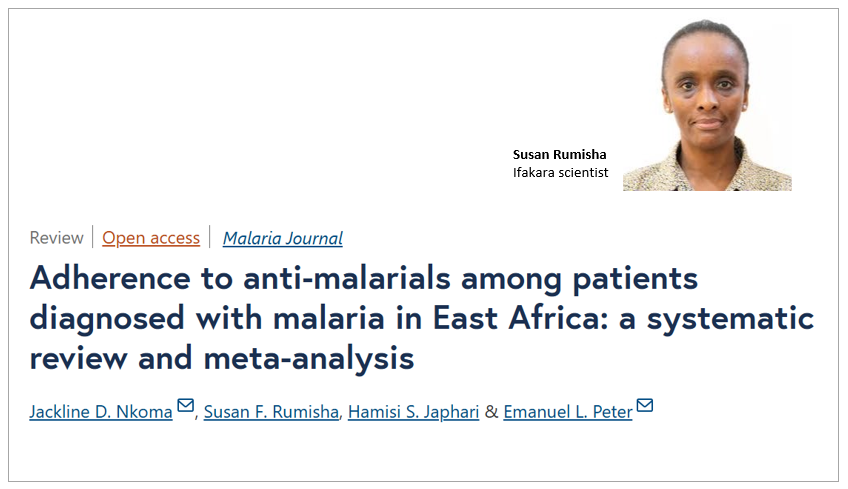
REVIEW: Inconsistent malaria medication use could derail elimination efforts in east Africa

A recent study by Ifakara and its partners has found that many patients in East Africa are not consistently following malaria treatment guidelines — undermining the region’s efforts to eliminate the disease by 2030.
Published on the Malaria Journal, the study systematically reviewed 29 studies involving nearly 16,000 patients across the region and found that only about 70% of patients take their anti-malarial drugs as prescribed—a rate that researchers say is insufficient to support elimination goals.
Proper adherence to medication is essential for curing malaria, preventing relapses, and avoiding the emergence of drug-resistant strains. "Although there is no standard cut-off point for optimal adherence, several studies point out that adherence levels of 80% and above are associated with desirable clinical outcomes," the authors noted. "The sub-optimal adherence observed in this review implies that regional efforts to eliminate malaria are at stake."
Wide disparities in adherence across countries
According to the review, adherence rates varied widely across the region. Rwanda reported a perfect adherence rate of 100%, while Tanzania recorded the lowest rate at 6.99%, raising concerns about inconsistent treatment practices and outcomes across the region.
Health facility-based support improves adherence
The study, conducted by researchers from the Ifakara Health Institute and the National Institute for Medical Research (NIMR), found that adherence rates were significantly higher when patients received clear instructions and took their first dose of medication at a health facility. These results highlight the importance of effective communication and strong health system support in ensuring treatment adherence.
Multiple factors contribute to poor adherence
“Several factors contribute to these variations,” the authors explained, “including method of assessment, definition of adherence, pill load, influence of herbal medicine, and patient socioeconomic status are some of them."
Mobile phone reminders show promise
The study also found that the use of mobile phone reminders, such as SMS, significantly improved adherence. In Uganda and Kenya, SMS reminders were shown to be effective in prompting patients to take their medication on time.
"These findings highlight the potential for scalability of mobile health interventions, given the widespread use of mobile phones in East Africa. However, challenges such as illiteracy, language diversity, and ensuring privacy must be addressed for broader implementation," the authors wrote.
What the study recommends
The authors recommend targeted interventions in countries with poor adherence to help achieve the 2030 elimination goal. Key strategies include improving patient behavior through better communication between healthcare providers and patients, ensuring supervised administration of the first medication dose, and conducting more interventional studies to address low adherence to anti-malarial in the region.
Study led by Tanzanian research institutions
This study review was conceptualized by Ifakara scientist Susan Rumisha and Emanuel Peter from the National Institute for Medical Research (NIMR), who both served as lead co-authors. Additional contributors included Jackline Nkoma and Hamisi Japhari, also from NIMR.
Read the publication here.
